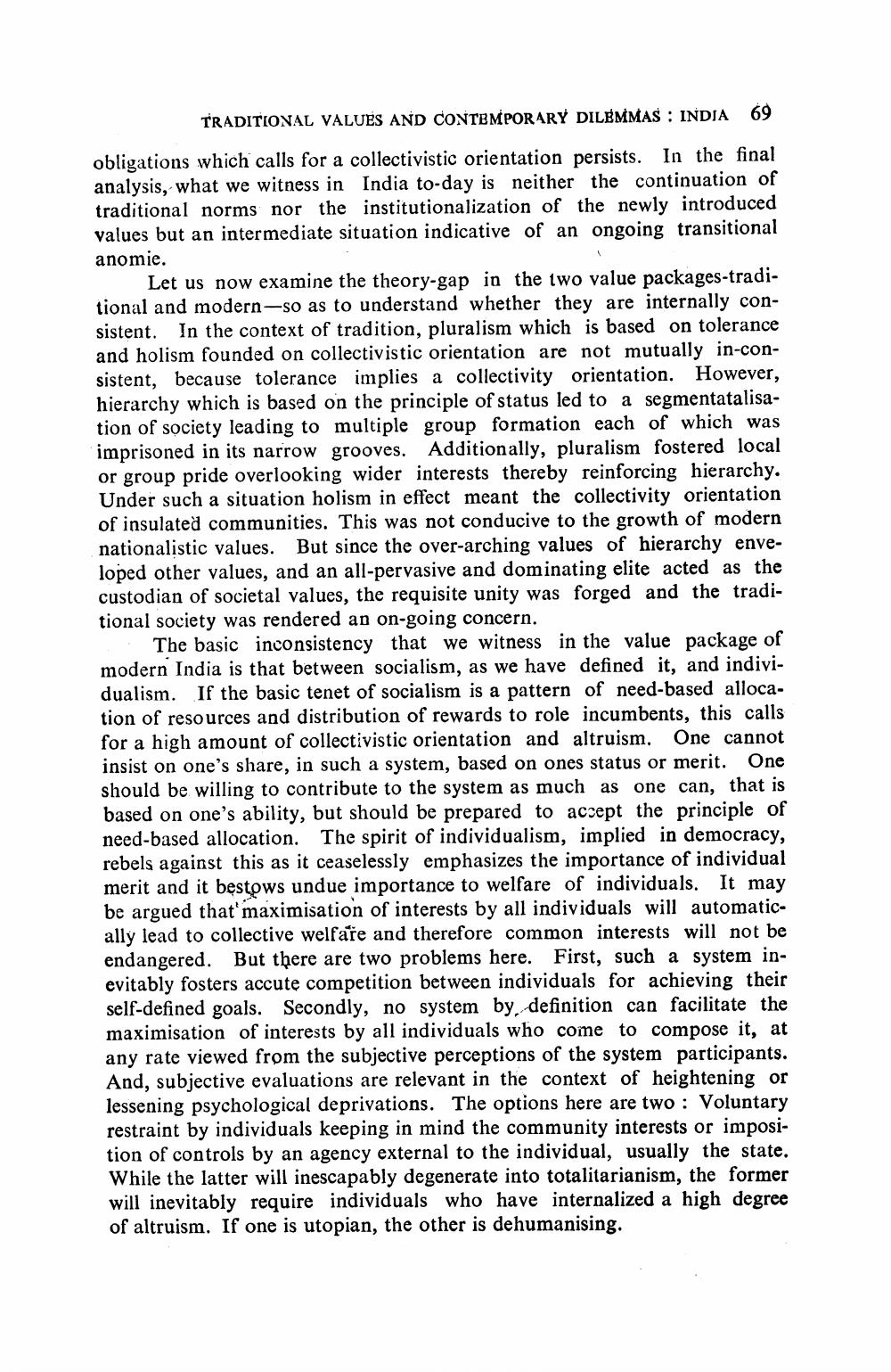________________
TRADITIONAL VALUES AND CONTEMPORARY DILEMMAS: INDIA
69
obligations which calls for a collectivistic orientation persists. In the final analysis, what we witness in India to-day is neither the continuation of traditional norms nor the institutionalization of the newly introduced values but an intermediate situation indicative of an ongoing transitional anomie.
Let us now examine the theory-gap in the two value packages-traditional and modern-so as to understand whether they are internally consistent. In the context of tradition, pluralism which is based on tolerance and holism founded on collectivistic orientation are not mutually in-consistent, because tolerance implies a collectivity orientation. However, hierarchy which is based on the principle of status led to a segmentatalisation of society leading to multiple group formation each of which was imprisoned in its narrow grooves. Additionally, pluralism fostered local or group pride overlooking wider interests thereby reinforcing hierarchy. Under such a situation holism in effect meant the collectivity orientation of insulated communities. This was not conducive to the growth of modern nationalistic values. But since the over-arching values of hierarchy enveloped other values, and an all-pervasive and dominating elite acted as the custodian of societal values, the requisite unity was forged and the traditional society was rendered an on-going concern.
The basic inconsistency that we witness in the value package of modern India is that between socialism, as we have defined it, and individualism. If the basic tenet of socialism is a pattern of need-based allocation of resources and distribution of rewards to role incumbents, this calls for a high amount of collectivistic orientation and altruism. One cannot insist on one's share, in such a system, based on ones status or merit. One should be willing to contribute to the system as much as one can, that is based on one's ability, but should be prepared to accept the principle of need-based allocation. The spirit of individualism, implied in democracy, rebels against this as it ceaselessly emphasizes the importance of individual merit and it bestows undue importance to welfare of individuals. It may be argued that' maximisation of interests by all individuals will automatically lead to collective welfare and therefore common interests will not be endangered. But there are two problems here. First, such a system inevitably fosters accute competition between individuals for achieving their self-defined goals. Secondly, no system by, definition can facilitate the maximisation of interests by all individuals who come to compose it, at any rate viewed from the subjective perceptions of the system participants. And, subjective evaluations are relevant in the context of heightening or lessening psychological deprivations. The options here are two: Voluntary restraint by individuals keeping in mind the community interests or imposition of controls by an agency external to the individual, usually the state. While the latter will inescapably degenerate into totalitarianism, the former will inevitably require individuals who have internalized a high degree of altruism. If one is utopian, the other is dehumanising.




